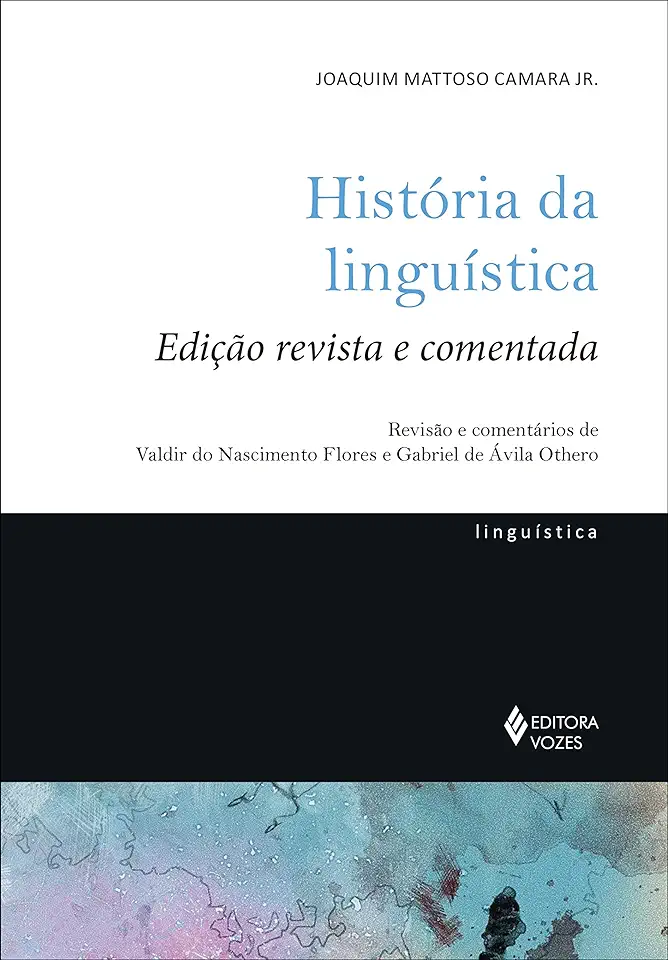
History of Linguistics - Joaquim Mattoso Camara Jr.
A Comprehensive Journey Through the Evolution of Language Study: Exploring "History of Linguistics" by Joaquim Mattoso Camara Jr.
In the realm of human knowledge, language stands as a captivating phenomenon, shaping our interactions, thoughts, and understanding of the world. Delving into the study of language is embarking on an intellectual adventure that spans centuries and cultures. Joaquim Mattoso Camara Jr.'s seminal work, "History of Linguistics," invites readers to embark on this enthralling journey, tracing the evolution of language study from its ancient roots to its modern frontiers.
Unveiling the Origins: Ancient Inquiries into Language
The book commences by delving into the earliest explorations of language, taking readers back to the dawn of civilization. Ancient civilizations, such as the Greeks, Indians, and Chinese, grappled with questions about the nature of language, its origins, and its relationship to thought. Camara Jr. meticulously unravels these early inquiries, shedding light on the foundational concepts that laid the groundwork for future linguistic investigations.
The Renaissance and the Birth of Modern Linguistics
As the world transitioned into the Renaissance, a renewed interest in classical learning sparked a revolution in linguistic studies. Camara Jr. vividly portrays the intellectual ferment of this era, highlighting the contributions of pioneering scholars like Dante Alighieri, Antonio de Nebrija, and Francis Bacon. These luminaries laid the groundwork for modern linguistics, emphasizing the importance of empirical observation and systematic analysis in understanding language.
The Enlightenment and the Age of Rationalism
The Enlightenment ushered in an era of rationalism and scientific inquiry, profoundly impacting the field of linguistics. Camara Jr. explores the influential ideas of philosophers like John Locke and Gottfried Wilhelm Leibniz, who viewed language as a rational system governed by universal principles. This period witnessed the emergence of comparative linguistics, as scholars sought to uncover the relationships between different languages and trace their historical development.
The 19th Century: Romanticism and the Study of Language
The 19th century brought a shift in linguistic thought, as Romanticism emphasized the expressive power of language and its connection to national identity. Camara Jr. delves into the works of prominent linguists like Wilhelm von Humboldt and Franz Bopp, who explored the intricate relationship between language, culture, and human cognition. This period also saw the rise of historical linguistics, with scholars meticulously reconstructing the evolution of languages through comparative analysis.
The 20th Century: Structuralism and Beyond
The 20th century witnessed a paradigm shift in linguistics, marked by the advent of structuralism. Camara Jr. elucidates the groundbreaking ideas of Ferdinand de Saussure, who viewed language as a system of interconnected elements governed by internal rules. Structuralism revolutionized linguistic analysis, inspiring a plethora of new approaches, including generative grammar, sociolinguistics, and pragmatics.
Contemporary Linguistics: Diversity and Interdisciplinarity
In the contemporary era, linguistics has embraced a multifaceted approach, encompassing a wide range of subfields and methodologies. Camara Jr. provides a comprehensive overview of current trends in linguistics, highlighting the contributions of scholars like Noam Chomsky, Michael Halliday, and Deborah Tannen. The book emphasizes the interdisciplinary nature of modern linguistics, drawing connections to fields such as psychology, anthropology, and computer science.
Why You Should Read "History of Linguistics"
"History of Linguistics" by Joaquim Mattoso Camara Jr. is an indispensable resource for anyone fascinated by the study of language. Its comprehensive coverage, engaging narrative style, and insightful analysis make it a must-read for linguists, language enthusiasts, and anyone seeking a deeper understanding of human communication.
Key Features:
- A comprehensive exploration of the evolution of language study from ancient times to the present.
- Detailed examination of influential scholars, theories, and methodologies that shaped the field of linguistics.
- Engaging writing style that brings the history of linguistics to life.
- Extensive references and further reading suggestions for deeper exploration.
Conclusion:
"History of Linguistics" is a captivating journey through the intellectual landscape of language study. Camara Jr.'s masterful work provides a profound appreciation for the complexity and richness of human language, inspiring readers to delve deeper into this fascinating field. Whether you are a seasoned linguist or simply curious about the intricacies of language, this book is an essential addition to your library.
Enjoyed the summary? Discover all the details and take your reading to the next level — [click here to view the book on Amazon!]